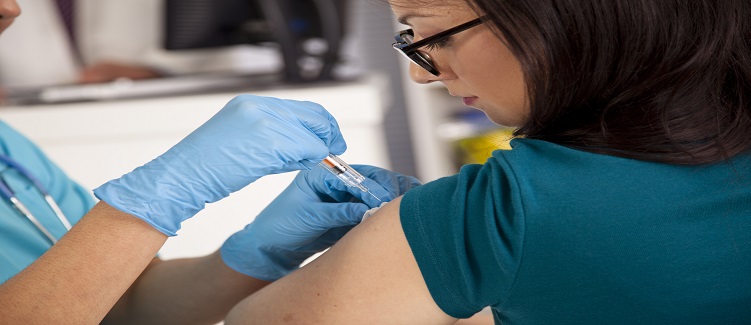If you have ever received a vaccination, you know your arm may feel a bit sore for a few days after the shot.
The pain you are experiencing is usually soreness of the muscle where the injection was given. This pain also is a sign that your immune system is making antibodies in response to the viruses in the vaccine.
Never Miss a Beat!
Subscribe to Our HealthBeat Newsletter!
Thank you for subscribing!
You can now select the specific newsletters you'd like to receive.
You are already subscribed.
Subscribe to more newsletters in our email preference center.
Sorry, an error occurred. Please try again later.
Get Healthy Tips Sent to Your Phone!
Pain After a Shot: Normal Site Reactions to Vaccines
According to the Centers for Disease Control and Prevention (CDC), in most cases vaccine side effects are minor and go away within a few days. Side effects vary according to vaccine type, such as flu, shingles, or pneumonia. Generally mild side effects of vaccines may include:
- Pain, redness, tenderness, or swelling at injection site.
- Fatigue.
- Headache.
- Itching at injection site.
- Nausea.
- Dizziness or fainting (most common in adolescents).
It is likely the combination vaccines — such as the diphtheria, tetanus, whooping cough (DTaP) — cause a greater local reaction and more of the “pain” you experience after the shot.
Can You Reduce Pain or Swelling After Vaccines?
If your arm hurts after a vaccine, there are some actions you can take:
- Move your arm around after the vaccine. If you try to keep too still, it may hurt more.
- Take a pain reliever for one or two days after receiving the vaccination to help with soreness and swelling.
- Rotate a warm pack on and off the injection site.
- If you’re concerned about the redness and swelling, outline the area with a marker. If it increases in size or does not decrease after a few days, call your doctor.
When Should I Seek Help for Injection-Site Pain?
Any injection site that continues to be problematic after 48 hours should be seen by your doctor immediately. Other symptoms that may warrant medical care:
- High fever following a vaccination.
- Signs of an allergic reaction, which can include difficulty breathing, hoarseness or wheezing, hives, paleness, weakness, a fast heartbeat, or dizziness.
Concerned about pain, swelling, or soreness after your vaccine? Find a UPMC Urgent Care location near you.
Editor's Note: This article was originally published on , and was last reviewed on .
About UPMC
Headquartered in Pittsburgh, UPMC is a world-renowned health care provider and insurer. We operate 40 hospitals and 800 doctors’ offices and outpatient centers, with locations throughout Pennsylvania, Maryland, New York, West Virginia, and internationally. We employ 4,900 physicians, and we are leaders in clinical care, groundbreaking research, and treatment breakthroughs. U.S. News & World Report consistently ranks UPMC Presbyterian Shadyside as one of the nation’s best hospitals in many specialties and ranks UPMC Children’s Hospital of Pittsburgh on its Honor Roll of America’s Best Children’s Hospitals. We are dedicated to providing Life Changing Medicine to our communities.

